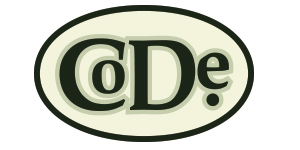- June 27, 2013
- Posted by: Code Interactive
- Category: Franchising
Updated Aug 6, 2013:
In the fictional works Gods of Ruin and Chaos and Kingdom, author JSB Morse explores the concept of a charter city, a jurisdiction within the United States that is autonomous and independent of state and federal law. This idea is not new. Well before the modern era, Hong Kong served as a charter city in China, operated by the British government with minimal laws and regulation. The result was one of the greatest economic explosions in the history of the world when a small rock off the coast of mainland China became the world’s fifth largest economy.
The success of Hong Kong (and other charter cities in China and elsewhere) have prompted Honduras to look into creating something similar. The government has realized that they haven’t been able to create the economic growth that is necessary to keep up with modern society, so they have changed their constitution to allow for special administrative zones (Zonas de Empleo y Desarrollo Económico or ZEDE in Spanish)—charter cities.
Recently, the Honduran government has officially passed new ZEDE legislation making way for the unprecedented program.
As The Freeman explains, this experiment will be truly unique:
Article 1 of the ZEDE legislation makes clear that Honduras will go only so far in granting sovereignty to startup cities. They must remain “an inalienable part of the State of Honduras.” The article immediately follows up, however, by calling the ZEDE “autonomous entities” and granting them the power to set their own immigration regulations and to control transportation system within their jurisdictions.In Article 3, the Hondurans show they want only the best for the ZEDE legal system: “They will have autonomous and independent courts with exclusive jurisdiction, which will be able to adopt judicial systems and traditions from other parts of the world,” subject to obligations to guarantee respect for basic human rights. The legislation imposes similar requirements on the ZEDE, including substantive and procedural rights, at many other points.You cannot understand how a government functions without following the money. Article 5 of the ZEDE legislation makes it clear: “The special fiscal regime of the ZEDE authorizes them to create their own budget, the right to collect and administrate taxes, to determine the rates charged for services provided, [and] to enter into all types of agreements,” even those lasting over many years.
The legislation also provides that the ZEDE must keep their budgets balanced (Article 24), that taxes are optional and cannot exceed specified levels (Article 29) that the ZEDE cannot impose currency exchange controls or other restraints on capital flows into and out of their jurisdictions (Article 30) and that imports into the ZEDE shall be free of taxes, tariffs, fees, or other charges (Article 32). The ZEDE will help pay their way by allocating 12 percent of all tax revenues collected to trusts established for the benefit of various branches of the Honduran government.


